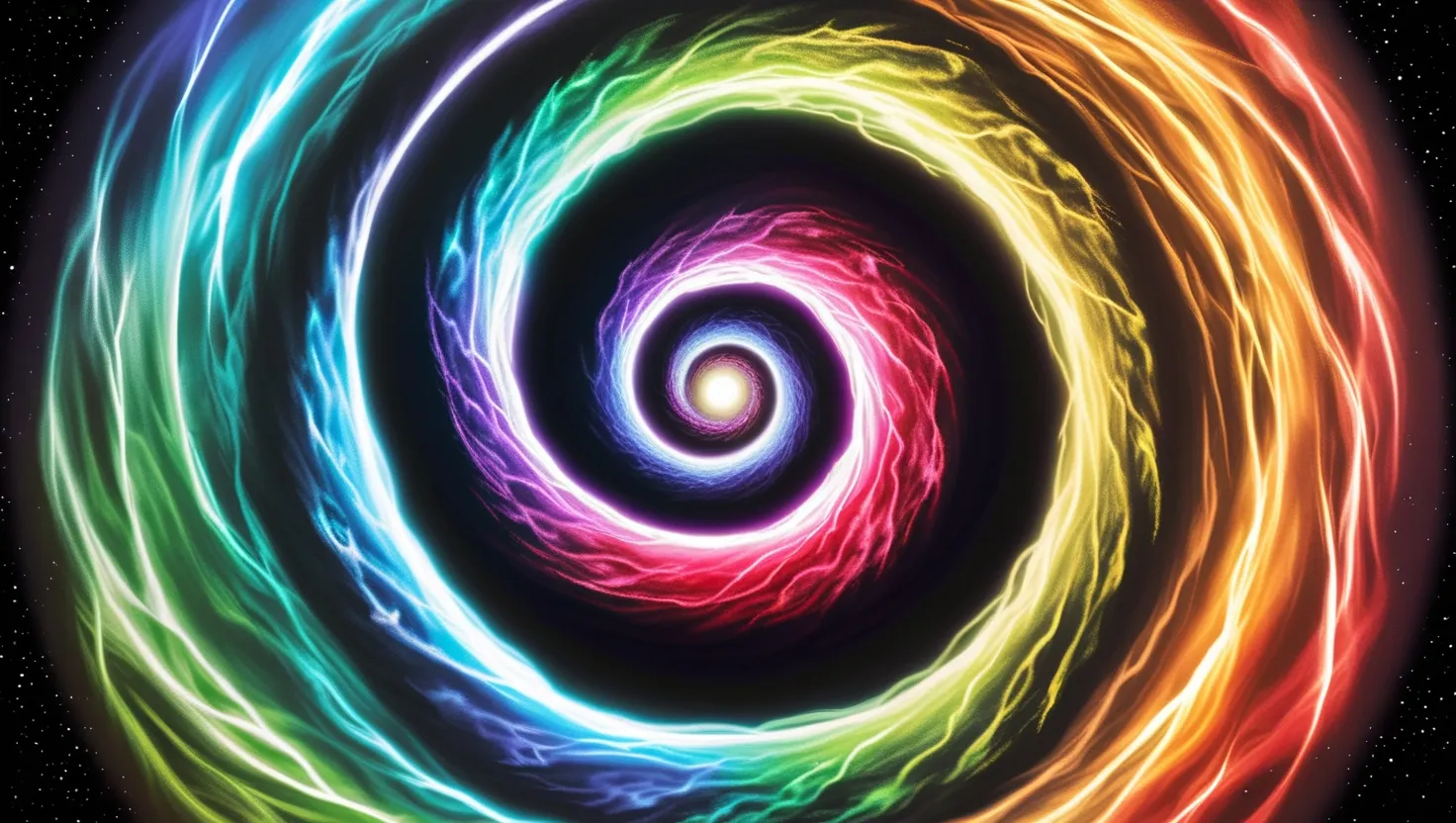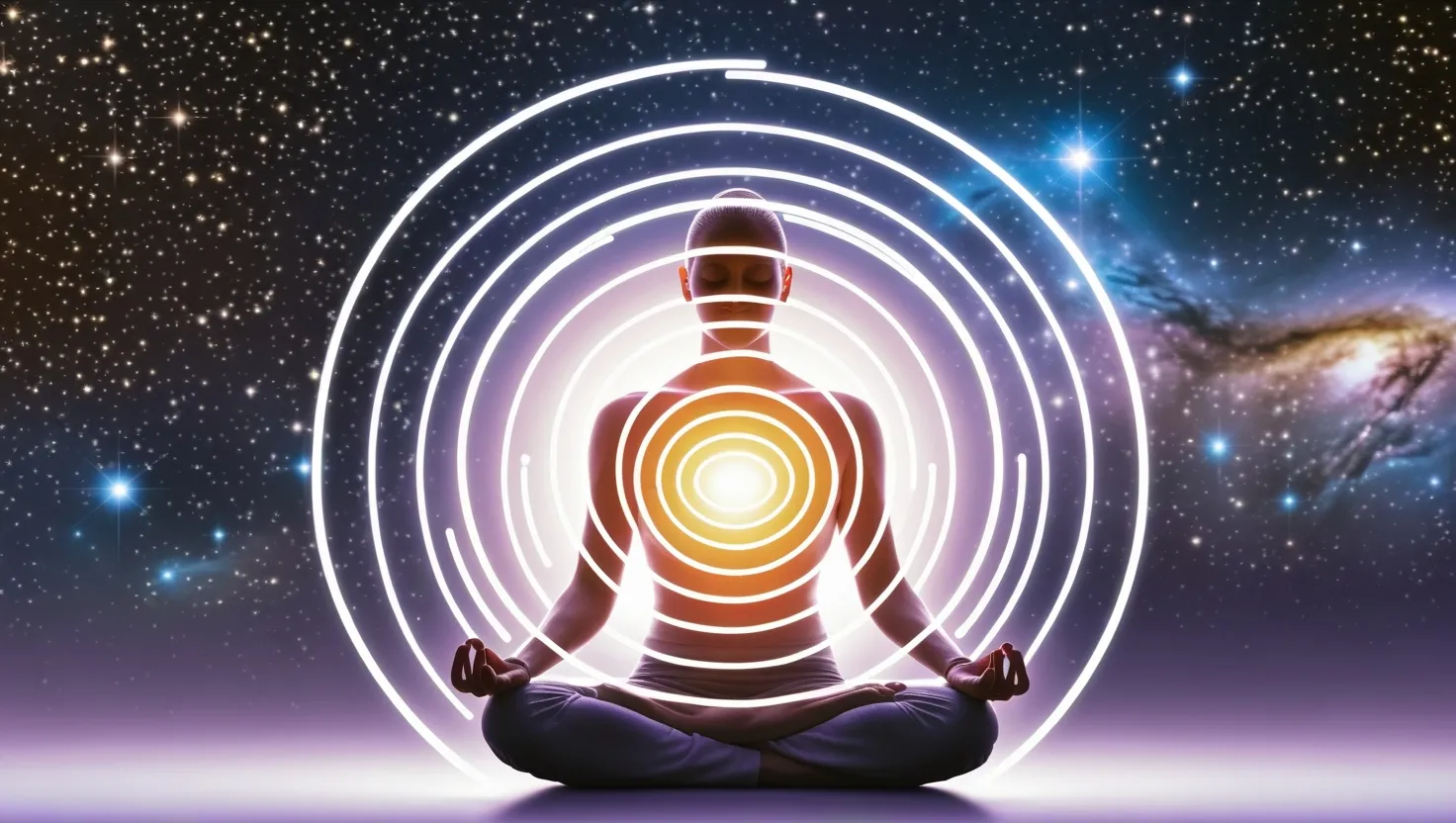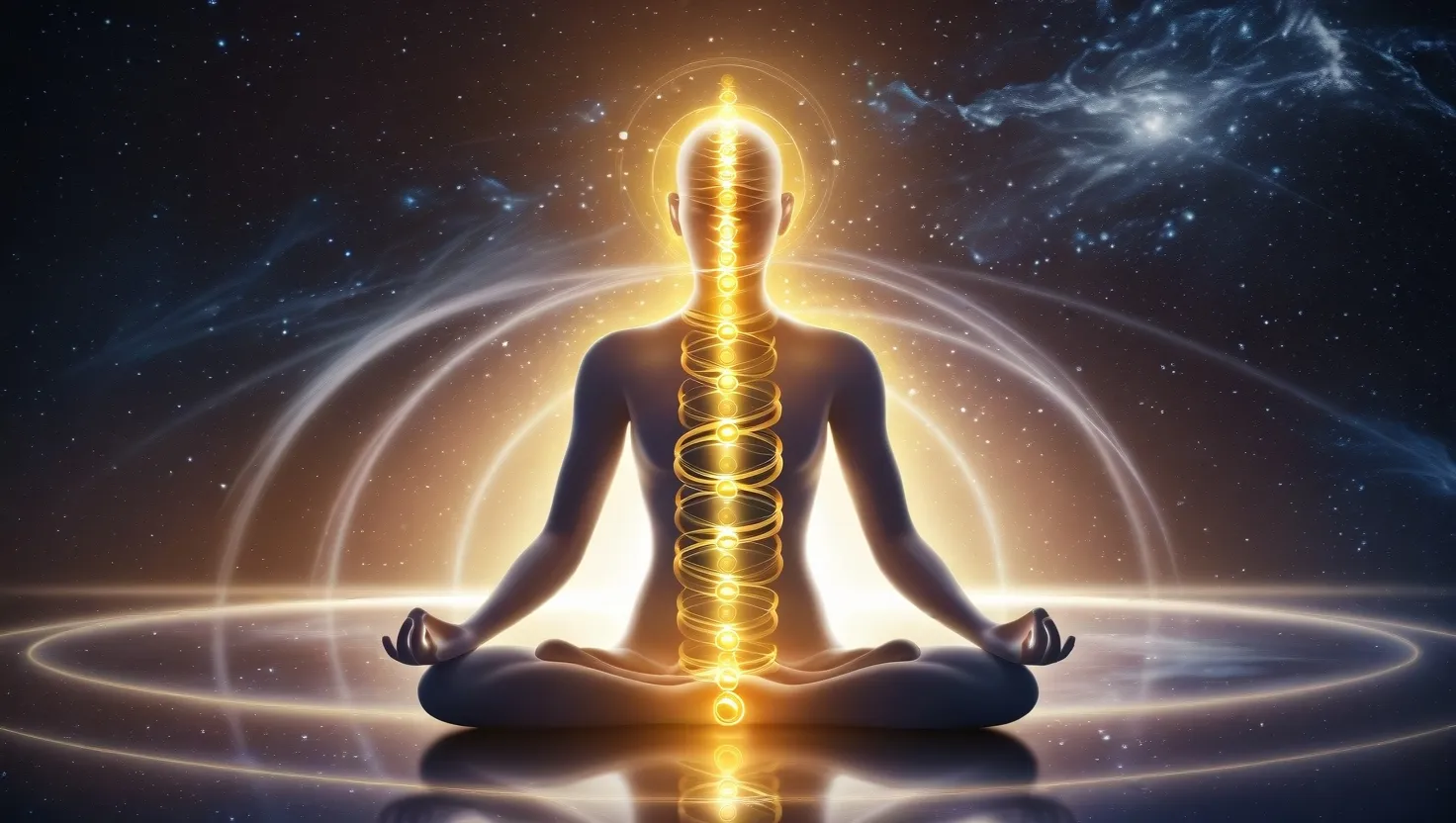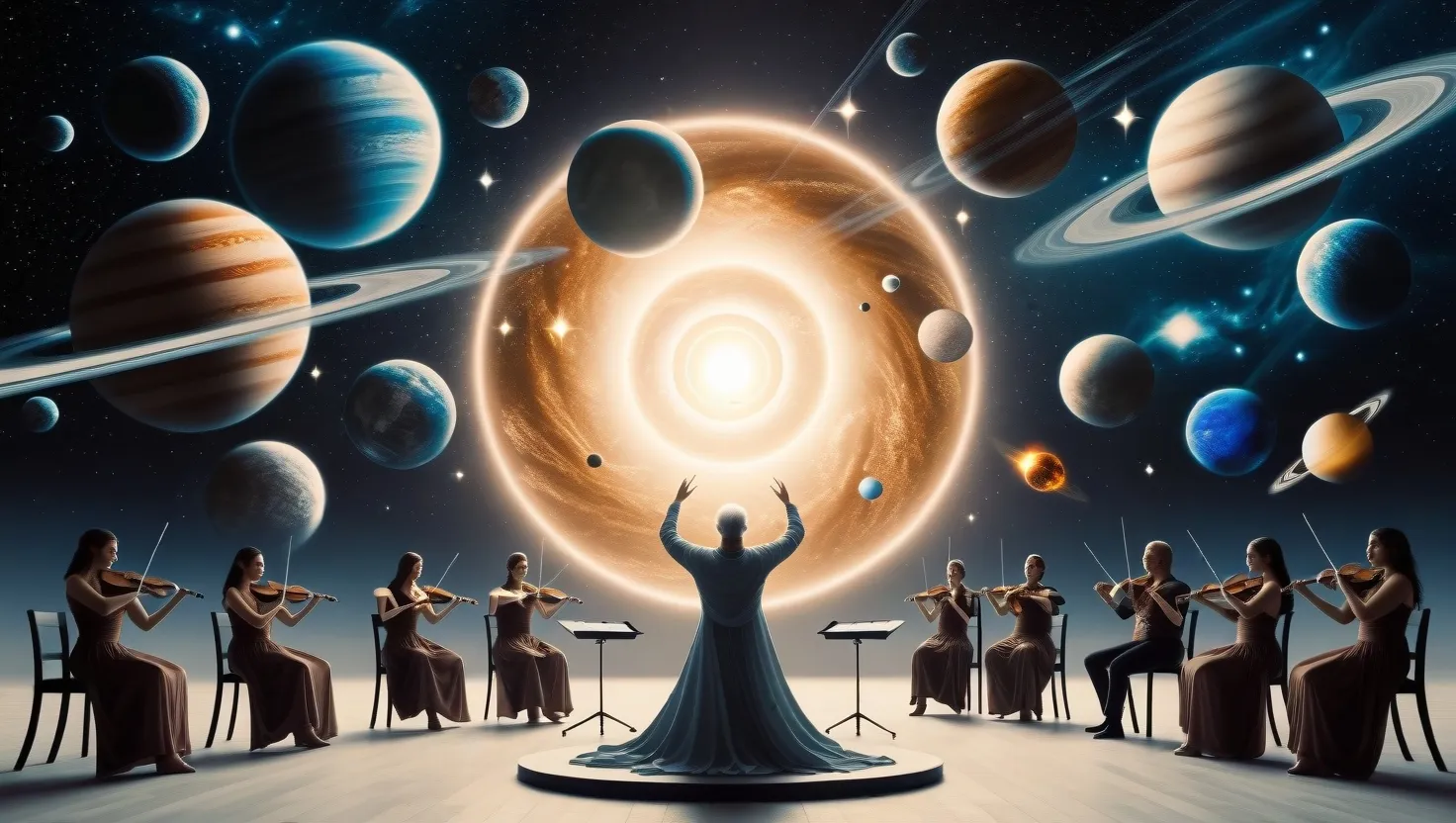Cosmic Illusion or Reality? Advaita Vedanta's Mind-Blowing Take on Existence
Explore Vivarta in Advaita Vedanta: Uncover the illusion of reality, the nature of Brahman, and the path to self-realization. Dive into cosmic wisdom.

Krama: The Hidden Gem of Kashmiri Shaivism Unveiling Cosmic Secrets
Explore Krama: A dynamic Kashmiri Shaivism school offering unique insights into cosmic energy, consciousness, and spiritual awakening. Discover its goddess-centered approach and transformative practices.

Krama: The Hidden Pulse of Kashmiri Shaivism's Cosmic Dance
Discover Krama: Kashmir Shaivism's hidden gem. Explore cosmic consciousness through dynamic sequences. Uncover ancient wisdom for spiritual growth. Click to learn more.

Unveiling Vyanjana: Hidden Meanings in Sanskrit Poetry That Will Blow Your Mind
Explore Sanskrit poetics' Vyanjana: the art of suggestion in words. Discover how indirect communication enriches poetry, drama, and spiritual texts. Uncover layers of meaning beyond the literal.

Unveiling Your True Self: The Powerful Pulsation of Consciousness in Hindu Philosophy
Explore Sphurana: The spark of self-awareness in Hindu philosophy. Discover how this Advaita Vedanta concept reveals our true nature and connection to cosmic consciousness.

Discover Your True Self: The Mind-Blowing Secret of Advaita Vedanta
Explore Advaita Vedanta: Discover the philosophy of nondualism, the unity of self and universe, and the path to spiritual liberation. Uncover ancient wisdom for modern life.

Mirror of Reality: Advaita Vedanta's Reflection Theory Unveils Hidden Truth
Explore Pratibimbavada: Advaita Vedanta's theory of reflection. Understand how the world mirrors Brahman, offering insights into reality and self-realization. #Philosophy #Spirituality

Cosmic Echo: How Ancient Sound Philosophy Reveals the Universe's Hidden Secrets
Pratishruti, or cosmic echo, is a Vedic concept linking sound and space. It suggests all creation echoes a primordial vibration. This idea connects our consciousness with the universe's deeper layers. Chanting mantras and sacred sounds can align our energies with this cosmic echo, fostering unity and harmony. Pratishruti offers a fresh perspective on our place in the universe's grand symphony.

Unlock Ancient Ayurvedic Secrets: Rasayana's Path to Vitality and Spiritual Growth
Rasayana, a key Ayurvedic concept, focuses on rejuvenation and longevity. It combines herbal remedies, lifestyle changes, and spiritual practices to boost vitality and immunity. Rasayana aims to enhance the body's vital essence (Ojas) and life force (Prana), offering personalized approaches like intensive indoor therapy and flexible outdoor treatments. It's not just about physical health, but also spiritual growth and cosmic alignment.

Harness Your Inner Power: Sankalpa Shakti's Secret to Transforming Your Life
Sankalpa Shakti is a Vedic concept of willpower that shapes reality through focused intentions. It involves forming deep-seated resolves aligned with one's highest aspirations. By harnessing this power through practices like meditation and yoga, individuals can overcome obstacles, achieve goals, and align with their life purpose. It's a tool for personal growth and spiritual development.

Sushumna Nadi: The Hidden Path to Spiritual Awakening and Cosmic Connection
The Sushumna Nadi is a key energy channel in yogic anatomy. It runs from the base of the spine to the crown, passing through seven chakras. Flanked by Ida and Pingala nadis, it's crucial for kundalini awakening. Practices like pranayama and mudras activate it, leading to spiritual growth and extraordinary abilities.

Cosmic Order Unveiled: Ancient Wisdom for Modern Balance and Harmony
Ṛta, the cosmic order in Vedic philosophy, governs the universe's physical and moral aspects. It's the natural law that keeps everything in balance, from celestial movements to human ethics. Ṛta influences dharma, karma, and rituals, guiding people to live in harmony with the universe. Understanding Ṛta offers wisdom for a balanced life and highlights our actions' impact on cosmic equilibrium.

Ajapa Japa: The Secret to Effortless Meditation and Spiritual Growth
Ajapa Japa is a deep meditation technique that combines breath, mind, and inner sound. It evolves from conscious mantra repetition to effortless awareness. The practice syncs breath with mantras like SO HM, leading to spontaneous repetition. It aims to integrate meditation into daily life, promoting relaxation, self-awareness, and spiritual growth. Ajapa Japa can be practiced anywhere, turning every breath into a meditation opportunity.
